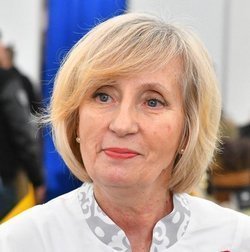‘A breath of fresh air’: how Kazan restaurants and hotels survived New Year holidays
Restaurateurs note that a lion’s share of their guests are tourists, while hoteliers registered cancellations of bookings on New Year’s Eve
The relaxation of coronavirus restrictions that unexpectedly “arrived” before New Year for Tatarstan cafes and restaurants from the republican government was good. During the New Year holidays, the festive profit of cafes and restaurants in Kazan soared: the flow of guests to some establishments increased by 50%, tourists provided 80% of the traffic at some bars. Only the uncertainly mars the situation: what awaits public catering after the end of long holidays. While an unpleasant tendency hurt the city’s hotels — sudden cancellations of bookings just before New Year.
Will the eased restrictions be extended?
Shortly before the New Year holidays, on 17 December, there was published a long-awaited decree of the Tatarstan Cabinet of Ministers for public catering institutions that on the New Year holidays (until 10 January) they could work until 1 a.m., not 11 p.m. The Association of Restaurateurs and Hoteliers of Tatarstan launched an initiative asking the local authorities to ease the restrictions on New Year’s Eve. The authorities met them halfway, while one could hang out in a restaurant until 3 a.m. on New Year’s Eve. The publication of the decree of the Cabinet of Ministers had an effect. There was big interest in Kazan cafes and restaurants, first of all, from tourists.
As Executive Director of the Association of Restaurateurs and Hoteliers of Tatarstan Galina Sharafutdinova said in December, tourists booked 80% of the seats in restaurants on the New Year night in Kazan. Before the pandemic, guests of the republic booked no more than 5% of seats on New Year’s Eve in Kazan restaurants. While Chairman of the Tatarstan State Committee for Tourism Sergey Ivanov predicted high occupancy rates at the republic’s hotels during the New Year holidays.
It is unclear what will happen next. Earlier, head of the Tatarstan office of Russia’s consumer rights protection watchdog Marina Patyashina claimed that the authorities would decide whether to cancel or extend the softer restrictions on 10 January 2022.
“The eased restrictions became a breath of fresh air”

“Everybody had the time to book New Year corporate parties. We saw the flow of guests increase, especially in the last week of 2021. This allowed public catering institutions to make a big profit,” says Sharafutdinova. “And New Year’s Eve, when the working hours were extended until 3 a.m., was very popular. After the publication of the decree, the restaurateurs started to receive calls, moreover, not only from Tatarstan citizens but also from guests from other regions who started to actively book tables. The establishments that worked on New Year’s Eve were 70% full according to requirements. They managed to get a good pool of guests.”
Sharafutdinova assumes that the softened restrictions had a very positive impact on the bar industry.
“Before the publication of the decree, bars were almost empty, many closed their doors until better times because their main traffic was from 11 p.m. to 1 a.m. And the softer restrictions became a breath of fresh air for them, while the guests managed to enjoy the atmosphere of good, quality bars where the drinking culture is popularised, where they can have a good time,” she is convinced.
As our interlocutor says, tourists traditionally provide the main profit on the New Year holidays for public catering institutions. Even cafes and restaurants that are far from tourist routes, in bedroom suburbs, also managed to receive a good influx of visitors. They were both locals and tourists who rented flats.
Now, when the holidays are over, Executive Director of the Association of Restaurateurs and Hoteliers of Tatarstan Galina Sharafutdinova summed them up and told Realnoe Vremya that the eased coronavirus restrictions that were announced in mid-December allowed restaurants to fully host corporate parties. Moreover, by our interlocutor’s evaluations, the announcement of eased restrictions wasn’t late, all institutions had the time to reorganise.“Earlier, some enterprises in bedroom suburbs didn’t used to receive guests of the city. However, the tendency changed in 2021. Seemingly, because tourists go to bedroom suburbs with an affordable price. In the end, these establishments received absolutely new traffic,” she thinks.
The interlocutor of our newspaper considers that the revenue of the New Year night and the festive days after that will allow covering expenses on the salary for the staff, purchase of products, repay some debts accumulated during the pandemic.
“When we worked until 11 p.m. and bars were closed, public catering enterprises didn’t almost have income. The majority broke even, somebody was at a loss,” claims Sharafutdinova. “They managed to generate some income during the New Year holidays. We know that there will be a sudden fall after 10 January, our industry is entering a low season. But the revenue will allow existing at least in January normally and work without working at a greater loss.”
Restaurateurs of the republic expect the decision of the authorities on the extension of softened restrictions or new ones. There isn’t yet new information about this.
“But we all hope that the measure allowing public catering institutions to work until 1 a.m. to be saved,” says the interlocutor. “The fall in the coronavirus incidence goes on in Tatarstan, the situation is under control, the epidemiological situation hasn’t worsened. This is why we really hope that the measures that are very important for us will stay, and if there isn’t a new wave, we expect a complete cancellation of restrictions. Our staff was fully vaccinated, guests were vaccinated, all necessary measures are followed. We expect the pandemic to start to decline and public catering establishments will be allowed to work in the usual mode with the admission with QR codes and compliance with all safety rules.”
“Why cannot a bar working until 6 a.m., which is its concept, operate until 6 a.m.?”

“The holidays were good, tourist traffic was in all establishments. The softer restrictions had a good impact. But the relaxation isn’t yet the most adequate,” he believes. “It is completely unclear why all public catering institutions cannot go back to the usual working mode. This is still a very strange story, everything is fine here in other regions. Why cannot a bar working until 6 a.m., which is its concept, operate until 6 a.m.? I don’t understand.”
According to Tyazhelov, indeed, precisely tourists provided the main influx of visitors on the New Year holidays.
“80% of our establishment on Bauman Street consisted of tourists, this share is of course smaller in the establishment further from the centre. But in any case, there were a lot of tourists in all the establishments regardless of their location,” the interlocutor of our newspaper claims.
“Thanks to the Tatarstan administration for supporting us”

“Our sector works to create amenities for citizens and guests who come to our favourite Kazan. How many times tourists will come back to us depends on how we will welcome them,” Gayazov says in a talk with Realnoe Vremya. “Thanks to the Tatarstan administration for supporting us and softening the restrictions on 20 December. We had corporate parties, we started to feel a bit more confident. But if we had been told about the softer restrictions as early as 10 December, it would have been better. By this time, a lot of enterprise already decided to give corporate parties or not, had them in the suburbs, in the office. In any case, this softening helped us.”
According to the interlocutor, the first tourists already appeared in cafes and restaurants on 31 December: the announcement of the last day as a day off played a role.
“We started to see a big number of tourists in the city’s public catering institutions from 2 January. But their number was anyway smaller than during the 2020 New Year holidays, approximately by 20-30%. Last year, the republic provided more opportunities when other cities were closed. This year, a lot of tourists went abroad on holidays, to warm countries. So we fell short of some tourists. But anyway there were guests, and this makes us happy,” Gayazov admits.
The president of the Association of Restaurateurs and Hoteliers supposes that the enterprises located in sites crowded by tourists — the Kremlin, Old Tatar Settlement, the Embankment, Black Lake, etc. — were the luckiest. There are traditionally more tourists in the historical part of the city than in bedroom suburbs, therefore the staff of cafes and restaurants had to be often redistributed to keep up with the tendency.
Gayazov also thanked the administration of Tatarstan and the Executive Committee of Kazan for the festive design of the city. Owners of public catering establishments also worked hard, especially in the centre of Kazan who adorned their facades.
“Hopefully, the new year will be luckier for our sector. But much will turn on the spread of coronavirus,” the interlocutor concluded.
“We decided to let everybody rest on New Year”

“It is the policy of our establishment, we care about our staff. So we decided to let everybody rest on New Year’s Eve. So we closed on 31 December earlier and opened later on 1 January,” he says. “Employees are also humans who we appreciate and respect. So we decided it would be better to do this way.”
By the interlocutor’s estimate, visitors already got used to the system of QR codes, became more disciplined in this respect. They rarely have to ask somebody to show a code — most already prepare their phone at the entrance to the establishment.
Butuzov claims that the softer restrictions and New Year holidays in general had a positive impact on the inflow of visitors. The decision on easing the restrictions was made on time, thanks to which it became possible to organise corporate parties before New Year. According to him, the growth of visitors on the holidays was 30-50%. Moreover, 25-30% of his guests were tourists.
“Without doubt, positive dynamics are seen now. We worked well. I hope we will manage to save the dynamics. We mostly feared a worsening of the situation. The question is what will happen after the New Year holidays. If everything get worse, we will start having some hardships,” he admits.
“Guests cancelled the booking a day before the arrival”

“The New Year night wasn’t as busy as it was during the previous years. This is certainly not 100% as it used to be, rather less than 90%,” she says. “The problem was that a lot of bookings were not guaranteed. During the previous years, a lot of tourist groups used to come, there were group bookings. And the timely announcement of the extended working hours of restaurants on New Year’s Eve played a role. This year, there were fewer tourist groups: many feared to book hotels in advance, they were not sure of restrictions in our region. Earlier, we had a lot of guaranteed bookings, while this time, there were even cancellations. Surprisingly, guests sometimes cancelled the booking a day before the arrival. This was unseen earlier. We have never seen people cancel their booking on New Year’s eve. We don’t yet know the reason. But we will talk with our colleagues and find out why this could happen.”
Yushutina assesses that the booking rate on the holidays was at the level of 2020 — more than 80% of rooms were booked from 2 to 7 January. However, the November holidays were a disaster.
Alexandra Yushutina agrees with some colleagues who say that the announced softer restrictions could have had a more positive impact if they had been announced earlier. A lot of guests were frightened by the introduction of QR codes in public transport and the fear of comfortable travel in the city.
“Some tourists waited for 10 December to learn about the working hours of establishments on New Year’s Eve. So they managed to find something else in expectation,” she reflects.